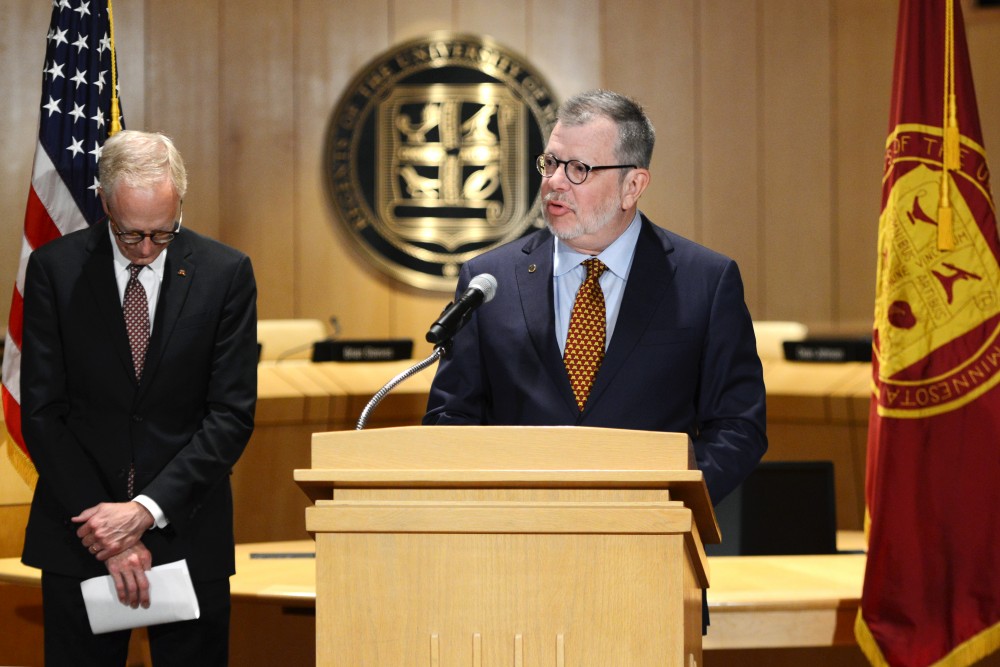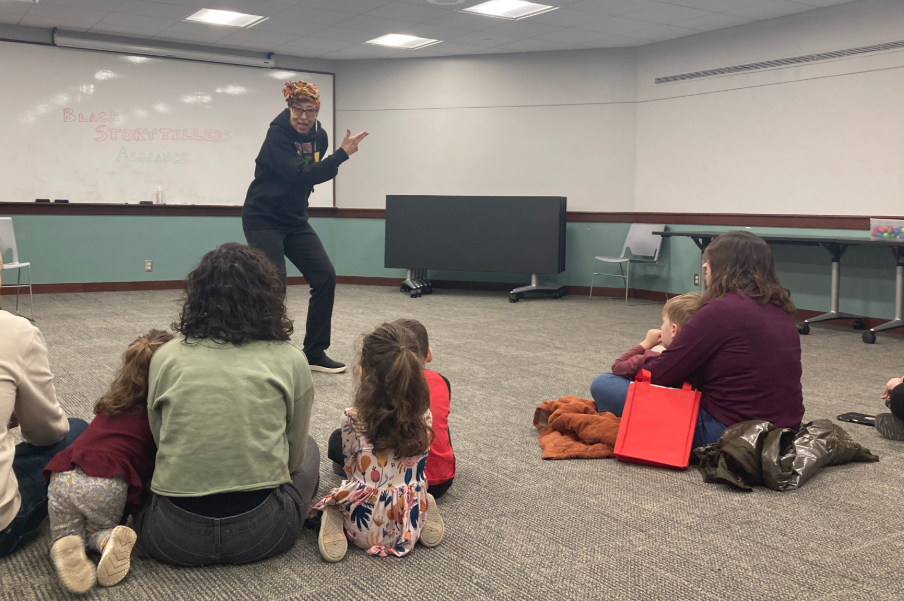University of Minnesota President Eric Kaler’s early resignation announcement has garnered mixed reactions from faculty and staff across system campuses.
On Friday, Kaler announced he will step down from his role in July 2019, one year before his contract was scheduled to end. Strengths and weaknesses of his presidency have been mentioned by campus stakeholders, marking a variety of responses to his decision.
Kaler cited an above-average tenure length, the high demands of the job and timing as reasons for his decision.
“It is really important… that [Kaler] is being thoughtful about what is best for the institution. We have had good [University leadership] who come in and recognize… when it is the right time to let somebody else step in,” said Faculty Consultative Committee Chair Joseph Konstan.
Faculty members react across system campuses
Throughout Kaler’s tenure, financial and academic priorities have been key points among feedback from faculty and staff.
Konstan said the decision surprised some in the Twin Cities’ faculty, while it has prompted others to offer input in the search for a new president.
“Some [feedback] was from people who were surprised, some from people who are already thinking ahead… about the search process for the next president,” Konstan said of the responses he received from Twin Cities faculty.
On the University’s Morris campus, professor of chemistry and University Senate’s Educational Policy Committee Chair Jennifer Goodnough said a majority of the faculty didn’t feel strongly about the decision.
“Seven years [as president] is a long time. I think that it is really good that people are neutral about his presidency and resignation. He did a lot during his time,” she said.
University of Minnesota-Duluth Chancellor Lendley Black said Kaler’s advocacy at the Capitol extended to Duluth’s needs, demonstrating a commitment to all system campuses.
“President Kaler has been a strong supporter of UMD and helped us define our important role within the UMN System,” Black said in a statement.
Kaler often stressed keeping undergraduate tuition low throughout his time in office. But Konstan said this emphasis sometimes took away from other University priorities.
“It was always frustrating how challenging it was to get the rest of the University the same amount of attention,” Konstan said.
This focus on undergraduate tuition partially came from pressure from the state Legislature to align the University’s priorities with those of lawmakers, Konstan said. Last legislative session, the University requested $10 million from the state’s surplus to hold tuition flat for undergraduate resident students, but was the allocation was denied by the state’s higher education committees.
Daniel Frisbie, head of the Department of Chemical Engineering and Materials Science, said Kaler has been successful in representing the University’s needs at the Capitol.
“The biggest challenge [in the presidency] is to communicate with the Legislature,” he said. “Despite the surprises Kaler had to deal with, he’s done a great job so far.”
Faculty’s focus on search
As the search begins for Kaler’s replacement, faculty say they hope their perspectives will be considered in the process.
“I want to see somebody that has a real vision for the role that a public research university can play… someone who can build a strong rapport with the public, state Legislature and the governor,” Konstan said.
Jigna Desai, a professor in the Gender, Women and Sexuality Studies department, said it’s important the next president have an academic background like Kaler.
“Most importantly, [there is consensus from faculty] that University presidents should be scholars and academics rather than political or business figures,” she said.
While discussion is ongoing over the search for a new president, Konstan said it is important not to forget that Kaler still has a year left in office.
Once his presidency is over, Kaler plans to continue work with the Driven fundraising campaign as president emeritus and later assume a faculty position in the Department of Chemical Engineering and Materials Science.
Kaler would be the latest University president to join faculty after leaving office. Former President Ken Keller is currently serving as president emeritus in the Chemical Engineering and Material Science department.








